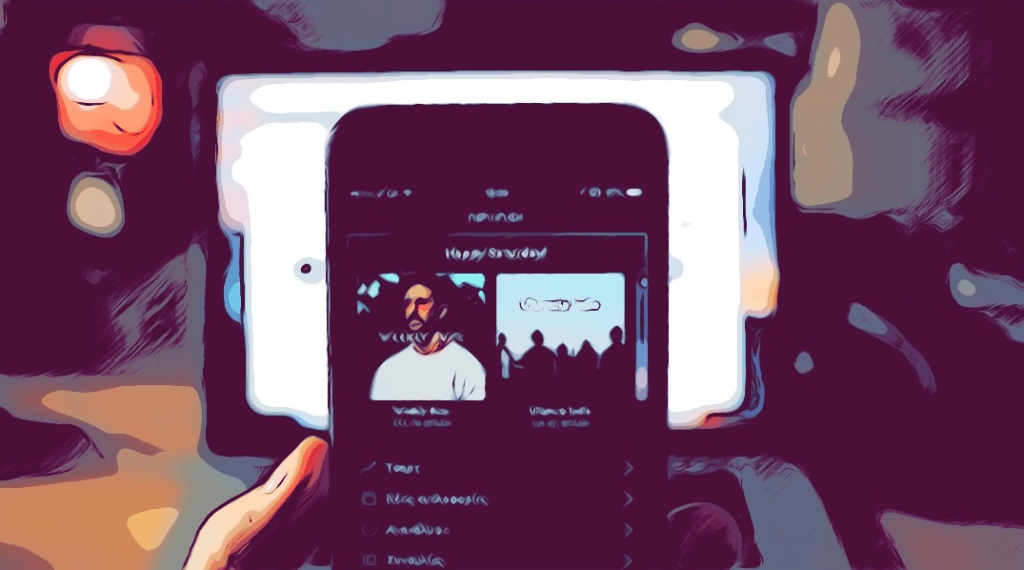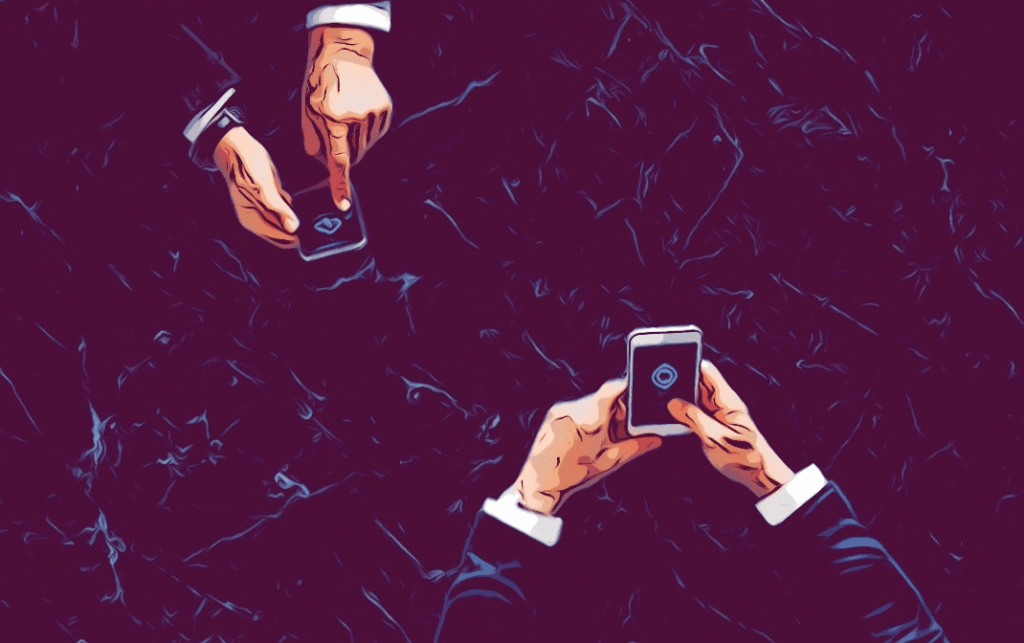Table of Contents
Everything you need to know about using push notifications to boost app engagement.
Mobile push notifications form a crucial part of any app engagement strategy. To keep your audience engaged and improve retention you’ll need to communicate with your users. There’s no better way to do this than mobile push.
Investing time and money into a push notification strategy is vital for apps that want to keep their users engaged. But, you must be savvy about when and how you send them.
Let’s say your mobile app has 100,000 downloads. On average after just one day you can expect your audience retention rate to be around 20%. After ten days this figure drops to 7.5%. After ninety days this figure, for most mobile apps, falls to around 2%.
That’s why you need an effective mobile app engagement strategy that includes valuable in-app notifications.
What is a mobile push notification?
A mobile push notification is an app engagement solution that delivers a notification to the home screen of an app user. This notification is delivered based on specific targeting criteria.

Targeting criteria has developed significantly since the origins of push notifications. Using customer retention tools apps can now adopt a mobile app push notification strategy that provides high ROI and significantly improves app engagement.”
A push notification strategy forms a crucial part of improving app engagement. It’s an effective way to boost engagement when applied correctly.
KPIs that lead to engagement
When sending push notifications there’s a few key KPIs that you’ll want to look at. It’s important to ask yourself – which aspects of my app engagement strategy am I trying to improve with these notifications?
- Number of active users
- Retention rate
- Session length
- Session rates
You must keep these in mind when considering your push notification strategy.
Around 70% of users opt-in for push notifications

Push notifications almost double app retention rates

But actually, as impressive as these statistics are, there is much room for improvement. One look at your phone and you realise how bad apps actually are at communicating with you via push notifications. This only serves to demonstrate the opportunity for the apps can take their app push notification strategy to the next level.
Providing an opt-in experience
The best push notification strategies include a sound opt-in experience for the mobile app user. Notifications do distract users from their daily routines. Therefore, your users must expect this to happen from the first moment they open your app.
The last thing that you’ll want to do is annoy your users. That’s why it’s important to explain your push notification strategy. You only have one chance to get this right. Explain your push notification strategy badly and none of your users will opt-in. Lack clarity and your users won’t be happy when they receive notifications they weren’t expecting.
A note on spam
One of the worst things that you can do is to spam your users with push notifications. The entire point of this article is to help you to craft a push notification strategy that puts the user experience at the forefront.
Mindlessly spamming your users will lead to huge disengagement – despite many push notification services saying otherwise.
Remember that everything you do with your app and everything that you want to achieve should create value for the app users. Fundamentally this is the best way to think when creating any kind of mobile strategy.
Relevancy is key
That leads me on very nicely to relevancy in push notification strategies. Whether you’re sending ios push notifications or android push notifications, you need to think about one important factor – relevancy.
This involves understanding your app users. A good push notification service will deliver you with valuable insights around your app users each time you push to them. This way you can very quickly build up a complex persona of what your user wants and how they interact with your app. But more on that later.
Relevancy means communicating with your users in the best possible micro-moment.
That means delivering push notifications only when it is relevant for the user. Place your user experience at the center of everything you do. Figure out the optimal micro-moment, and ensure that notifications are only used at these relevant times.
There are multiple methods of figuring out what these moments are for your users. But the best way is using data.
The more complex your push strategy is – that is the more powerful the targeting options, the more powerful the app insights that you’ll get from the service.
Personalisation and location-based push
So, before we look at specific examples, let’s look at how you can create the best push notification strategy. Along with the individual targeting options that help create the optimal user experience.
Notification timing
One of the most important things to consider when creating your push notification strategy. App engagement strategies have developed beyond only asking when the best time of day to send push notifications.
One of the quickest ways to lose users is by annoying them with notifications when they don’t want to receive them. It sounds obvious but so many apps get this wrong.
That’s why it’s important to understand the best moment to reach your users. App developers must also choose a service that allows you to fine-tune push notification delivery.
As mentioned, we’re not just talking about the time of day. Whilst it’s a fundamental way to tailor delivery it’s just the beginning of getting the timing right.

Here’s a classic example of a personalized push notification. But to engage you app users in 2017 you’ll need to do better.
Timing includes location. Timing a notification to deliver when the user is a specific situation allows you to engage on a personal level, and ensure that you maintain communication effectiveness.
It’s in these micro-moments that you’ll be able to create value for your mobile app users, keep them engaged and improve the app experience.

Of course, it may take a little while to understand which are the best moments to reach your users. That’s why testing exists. Eventually, you’ll learn the perfect timing for your push notification strategy.
Segmentation

It’s important to choose which users should receive your notifications. Don’t just blindly send notifications to your entire audience as in the example above. Improving mobile engagement requires you to be savvy about who receives them. The better your segmentation capabilities, the better your push notification strategy will be.
This means segmenting your users based on how they have previously responded to push. It also includes how they use your app or services. Most push notification delivery tools allow you to do this.

If you want to take this even further (and you should), then you can segment your audience based on their historical location or behavior. But essentially, this allows you to reach the users that are most likely to engage with your push notifications.

Once you get to this level of user segmentations you can ensure that you deliver push notifications to relevant users. Not only will this reduce the number of annoyed users, it will also help you to create tailored communication with the users that you do target. Improving the user retention and keeping your mobile app users engaged!
Frequency
How often should you send notifications as part of an effective strategy? As a general rule of thumb, less is more until you have a sound understanding of your users and exactly how your app functions.
You should be searching for a push notification service provider that allows you to create a push strategy with frequency caps. Push notification delivery limits based on location is even better.
Push notification frequency largely depends on the type of app. If it’s an app in which the average user doesn’t spend a lot of time then it will be counterproductive to send notifications frequently. You’d be much better off understanding exactly the right moment to communicate, segment your users as much and possible and personalize the message to boost engagement and revenue.
If you have a shopping, lifestyle or similar app then it is understandable that you would be communicating with them more regularly. But that’s not an excuse to take advantage. Ultimately the best app push notification strategies prioritize quality over quantity. They understand exactly how often to push to their users.
Deep linking
This all become pretty worthless if you don’t think about where you want your user to end up inside your app. The relevant function in your app should open from the notification
This is where you can be creative and provide an experience that makes sense based on the content that you have in the push notification. You can get really smart and personalize the experience even further by using different endpoints for different user segments.
Ultimately think about deep linking and ensure that your push notification service provider can adapt to specific requests and end points. Make sure that you push notification service allows you to be flexible around deep linking as a minimum requirement. Insights around push notifications and mobile user experience
Your mobile app engagement strategy and your push notification strategy should influence each other. Understanding how can be difficult unless you get into the data mindset.
You can learn a lot about your app users by sending them notifications. If the targeting criteria are highly specific then the insights that you’ll generate from the push notification campaign will also be specific.
Precise data sets mean that you can adapt and learn as you develop your push notification model. As you learn more about your users you’ll understand how to boost engagement even further. Mobile app testing and learning is the key to any marketing strategy and it’s no different for push notifications.
The insights you’ll gain from communicating and engaging with your users will extend to other aspects of your app strategy as well as helping you to improve the mobile user experience.
The future of in-app communication
Push notifications are more than just a pop-up on your phone. If you don’t abuse the trust that your users give you then they can be an extremely valuable tool to improve app engagement.
User engagement should be at the top of every developer’s priority list. Ensuring that your mobile app audience gets the most relevant notifications in the best possible micro-moment builds trust with users and can have far-reaching benefits into other aspects of your mobile app strategy.
Conclusion – An in-app notification checklist for app developers
- Your opt-in experience is just as important as your push notification experience.
- Put your user first and understand how they use your app
- Relevancy is the most important factor when choosing a strategy
- Choose a push notification provider that allows you to leverage location into your strategy. The right mobile engagement platform can make a huge difference to results.
- Think post notification click.
- Data and insights are your best friend. Learn and grow.
Grow your app with Tamoco
James is the head of marketing at Tamoco




Leave a Reply